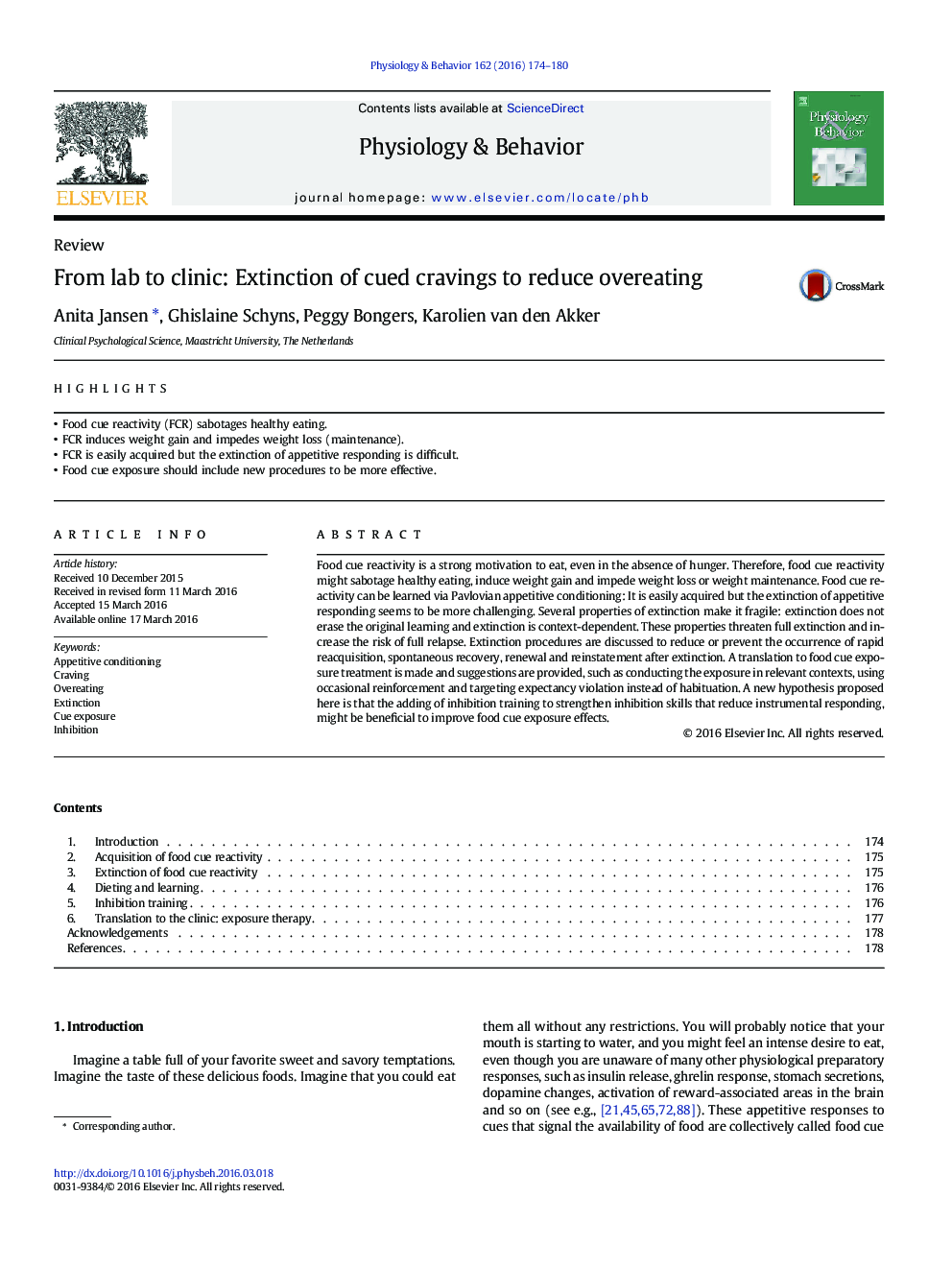| کد مقاله | کد نشریه | سال انتشار | مقاله انگلیسی | نسخه تمام متن |
|---|---|---|---|---|
| 2843914 | 1571156 | 2016 | 7 صفحه PDF | دانلود رایگان |
• Food cue reactivity (FCR) sabotages healthy eating.
• FCR induces weight gain and impedes weight loss (maintenance).
• FCR is easily acquired but the extinction of appetitive responding is difficult.
• Food cue exposure should include new procedures to be more effective.
Food cue reactivity is a strong motivation to eat, even in the absence of hunger. Therefore, food cue reactivity might sabotage healthy eating, induce weight gain and impede weight loss or weight maintenance. Food cue reactivity can be learned via Pavlovian appetitive conditioning: It is easily acquired but the extinction of appetitive responding seems to be more challenging. Several properties of extinction make it fragile: extinction does not erase the original learning and extinction is context-dependent. These properties threaten full extinction and increase the risk of full relapse. Extinction procedures are discussed to reduce or prevent the occurrence of rapid reacquisition, spontaneous recovery, renewal and reinstatement after extinction. A translation to food cue exposure treatment is made and suggestions are provided, such as conducting the exposure in relevant contexts, using occasional reinforcement and targeting expectancy violation instead of habituation. A new hypothesis proposed here is that the adding of inhibition training to strengthen inhibition skills that reduce instrumental responding, might be beneficial to improve food cue exposure effects.
Journal: Physiology & Behavior - Volume 162, 1 August 2016, Pages 174–180
